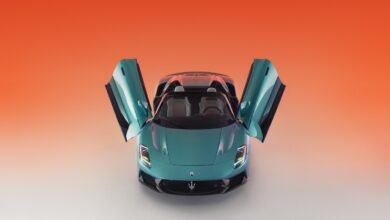Volkswagen’s Game-Changing Farming Innovation: Unveiling the Surprising Alternative to Trucks

As the Volkswagen Polo approaches its 50th anniversary next year, it’s evident that this small car has embraced various forms over the decades. Since its debut in 1975, it has donned hats of a hatchback, sedan, wagon, and even a crossover – who can forget the Polo Cross? Now, Volkswagen’s Brazilian division is reigniting the spirit of adventure with a new iteration tailored specifically for farmers.

Meet the Polo Robust, a rugged take on the beloved supermini, engineered with agricultural needs in mind. VW Brazil asserts that this crossover-inspired variant has been meticulously “developed and tested with customers in the agricultural segment.” Equipped with a raised suspension, the hatchback on stilts promises enhanced ground clearance to tackle rough terrain, reminiscent of the Dacia Sandero Stepway.

But the Polo Robust doesn’t stop at a lifted suspension. Volkswagen Brazil has equipped it with practical features tailored for farm life, including vinyl seats that are a breeze to clean after a long day’s work. Rubber floor mats and a trailer hitch further emphasize its utility. However, its capabilities are modest, as it is powered by a naturally aspirated 1.0-liter gasoline engine, delivering a humble 84 horsepower and 101 Newton-meters (75 pound-feet) of torque through a five-speed manual gearbox to the front wheels.

Positioned as an alternative to the locally available pickup trucks, such as the new Saveiro and the larger Amarok, the Polo Robust offers a compact yet capable solution for farm needs. While the Amarok, still in its first generation in Brazil, remains true to its original model developed in-house, the second-generation model, launched last year, is based on the Ranger and is manufactured by Ford in collaboration with Volkswagen.



